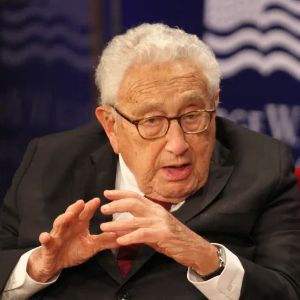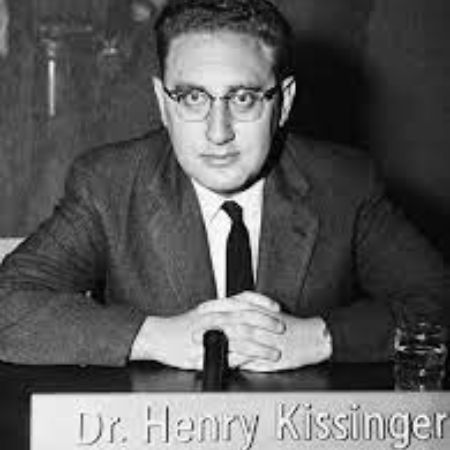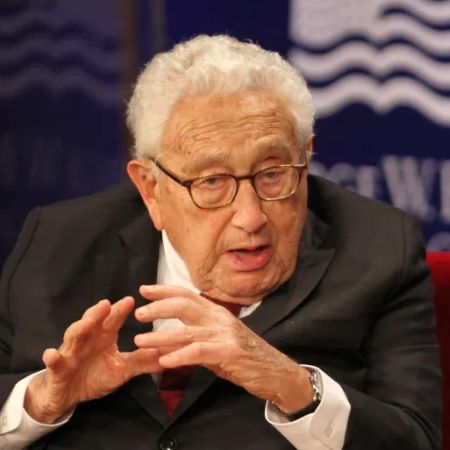Henry Kissinger, Former Secretary of State, Passes Away at the Age of 100

Henry Kissinger, the influential former U.S. Secretary of State and National Security Advisor who profoundly influenced American foreign policy for decades, passed away on November 29, 2023, at the age of 100. His consulting company, Kissinger Associates, confirmed his death on Wednesday night. In this article, we'll explore the life and legacy of one of the most influential and controversial statesmen of the 20th century.
Who was Henry Kissinger?
Henry Alfred Kissinger was an influential American diplomat, political scientist, and statesman who held the positions of United States Secretary of State and National Security Advisor. Immigrating to the United States in 1938, he became a prominent figure in U.S. foreign policy, significantly influencing diplomatic relations throughout the presidential tenures of Richard Nixon and Gerald Ford.
 Henry Kissinger was the influential former U.S. Secretary of State and National Security Advisor.
Henry Kissinger was the influential former U.S. Secretary of State and National Security Advisor. Notably, he was awarded the Nobel Peace Prize for his involvement in negotiating a ceasefire in Vietnam. Kissinger was also a prolific author and played various roles in international consulting and advisory capacities.
A Controversial Statesman
Kissinger was born in Germany in 1923 and emigrated with his family from the Nazi regime in 1938. He obtained U.S. citizenship in 1943 and served in the U.S. Army during World War II. He completed his bachelor’s, master’s, and doctoral degrees at Harvard University, where he later became a professor of government and international affairs.
Likewise, he became well-known as a national security advisor and secretary of state under Presidents Richard Nixon and Gerald Ford, serving from 1969 to 1977. During this time, he played a pivotal role in initiating diplomatic relations with China, facilitating the conclusion of the Vietnam War, mediating the Arab-Israeli conflict, and promoting détente with the Soviet Union. In recognition of his efforts to end the Vietnam War, he was jointly awarded the Nobel Peace Prize in 1973 with Le Duc Tho of North Vietnam.
Nevertheless, Kissinger faced substantial criticism for his participation in clandestine operations and military interventions, leading to human rights abuses and civilian casualties in nations like Chile, Cambodia, Bangladesh, and East Timor.
Allegations of war crimes, genocide, and crimes against humanity were leveled against him by numerous activists, scholars, and governments. Consequently, he encountered legal disputes and protests in various countries and was barred from entering some of them.
READ MORE: Tiffany Haddish Arrested on Suspicion of DUI in Beverly Hills
A Lasting Legacy
Regardless of the controversies surrounding him, Kissinger maintained his influential presence in U.S. and global politics, offering counsel, guidance, and commentary on a range of issues. He penned numerous publications on international relations, history, and diplomacy and garnered several accolades and distinctions, such as the Presidential Medal of Freedom, the most esteemed civilian honor in the U.S., which he received in 1977.
 Henry Kissinger died on November 29, 2023, at the age of 100.
Henry Kissinger died on November 29, 2023, at the age of 100. What's more, he held the position of chancellor of the College of William & Mary from 2000 to 2005 and chaired the 9/11 Commission from 2002 to 2003. Furthermore, he established and headed Kissinger Associates, a geopolitical consulting firm, up until his passing.
Kissinger is survived by his second wife, Nancy Maginnes, and his two children, Elizabeth and David, from his first marriage to Ann Fleischer, as well as four grandchildren and two great-grandchildren.
READ MORE: Raul Conde, Father of Erica Mena's Son, Passes Away at 52
While his funeral plans have not been disclosed, it is anticipated that he will be interred at Arlington National Cemetery, as per his preferences. He will be commemorated as one of the most impactful and contentious statesmen of the 20th century.
Stay up-to-date at Married Wiki for more celebrity content.